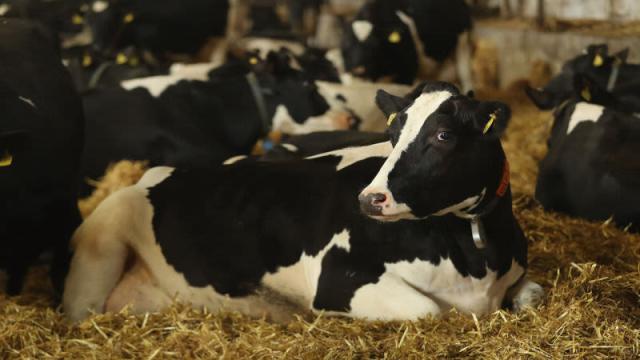In January, as the Obama era was winding down, both the US Food and Drug Administration and the US Department of Agriculture quietly snuck through proposed regulations set to substantially overhaul the regulation of genetically engineered organisms for the first time in 30 years – and create drastic roadblocks to the development and commercialisation of genetically engineered foods.
Image: Getty
Scientists railed against the regulations as anti-science. Now the USDA has announced that it is withdrawing its proposed rules.
During a comment period after proposing the rules, the agency said that it received 203 comments from growers, scientists, consumer safety groups, industry, and even a separate federal agency.
“Some thought that our criteria for designating GE [genetically engineered] organisms as regulated organisms were too expansive, potentially resulting in our regulating a wider range of GE organisms than necessary and thereby increasing, rather than reducing, the regulatory burden for the biotechnology industry,” the agency’s acting director of Animal and Plant Health Inspection Service wrote in an official document. “Other commenters, however, thought that certain exemptions and exclusions contained in the proposed rule would effectively narrow the scope of our regulatory authority over GE organisms and increase the risk of the unintended presence of GE crops in organic and other non-GE crops.”
The outcry came because the FDA and USDA each sough to regulate genetically engineered animals and plants, respectively, based on wildly different criteria from one another, and each policy with its own individual set of problems. The USDA suggested that it would only regulate plants with genes from pests or noxious weeds. The FDA, meanwhile, sought to create strict regulatory hurdles for any genetically modified animal.
In both cases, critics complained that the basis for regulation was unscientific.
“Both the solutions proposed in the United States have the potential to err, albeit in opposite directions,” an editorial in the journal Nature concluded. “Regulating all gene-edited animals may make little sense for a change that merely reproduces a DNA sequence found in nature, or that could be recreated by using chemicals to randomly mutate DNA. Conversely, waving through many edited crops could under-regulate some with the potential to alter agricultural ecosystems. For example, a herbicide-tolerant plant could lead to changes in spraying that generate herbicide-resistant weeds.”
In a rare moment of bureaucratic common sense, the USDA has now decided to go back to the drawing board. For now, an April 2016 decision to not regulate gene-edited crops unless they contain “plant pests” such as viruses or bacteria will stand.
The FDA, meanwhile, has made no announcement on whether it plans to move forward with its own troublesome rules after the public comment period ended.
Scientists like Alison Van Eenennaam, a geneticist at the UC Davis, have advocated for a more consistent framework across agencies that looks instead at the end product rather than the method used to create it. For example, hornless beef cattle created by successfully crossbreeding them with cows that naturally do not have horns are not subject to FDA regulation. But dairy cows genetically engineered with the same genetic coding for horns would be subject to a strict regulatory approval process.
“They are the same end product,” Van Eenennaam said at a dinner earlier this week in San Francisco. “It just doesn’t make sense.”
